Matthew Soerens on plans to resettle refugees in Eau Claire
World Relief Vice President of Advocacy & Policy Matthew Soerens discusses the resettlement agency's work to help refugee families make new homes in Eau Claire as critics object to the process.
By Marisa Wojcik | Here & Now
February 14, 2024 • West Central Region
VIDEO TRANSCRIPT
Marisa Wojcik:
Can you just start by telling me about the process of getting set up in the Eau Claire area? When did that start and how did that that start?
Matthew Soerens:
Yeah, so it goes back almost a year now with the federal government seeking to increase the number of refugees being resettled into the United States over the last several years. We wanted to do our part to do more as well and we've been resettling refugees in the Fox Valley of Wisconsin for a number of years, and it's been a really great community where refugees have been received really well and have done really well, have integrated beautifully into that community, which is actually the community where I grew up. So we were looking for other places, around the country, but including in the state of Wisconsin that might be a good location for refugee resettlement. So we began a, just an exploratory process, this was our staff out of the Appleton, Wisconsin area of what are other communities in Wisconsin that have the right mix of a welcoming community, of job opportunities, of relatively affordable housing, of faith communities that wanna be a part of welcoming refugees 'cause that's really central to our mission at World Relief. And you know, we looked at a number of communities but Eau Claire came to the top of the list as sort of hitting all those marks. And we began a process of consulting with local leaders, governmental leaders, as well as school boards, law enforcement, potential employers, apartment landlords, local churches and other nonprofit organizations. And really came to the conclusion that this is a community that is really eager to welcome refugees. And we proposed that to the federal government, which has the ultimate authority on where refugees are settled under the Refugee Act of 1980. And the federal government did their own due diligence and verified our proposal and worked with the state refugee coordinator as well. And at the end of all that process, we sent out a press release last September announcing our intention to open up in Eau Claire and to begin resettling relatively small number of refugees into the community.
Marisa Wojcik:
It sounds like your organization had many, many conversations leading up to this formal proposal to the federal government.
Matthew Soerens:
Absolutely. I mean, and that's always our process. And in fact, we had conversations with places where we didn't end up proposing resettlement as well, and we determined actually this might not be the ideal fit, and it was Eau Claire really came to the top, both at the local governmental level as well as you know, education, public health, employment opportunities, which is, you know, there's a very strong focus on the federal refugee resettlement program to help refugees find work within the first 90 days after they arrive and be economically self-sufficient as quickly as possible. And western Wisconsin has a lot of job needs actually right now, so that we can provide people who are authorized to work was actually a win-win.
Marisa Wojcik:
Have you had conversations with people like Congressman Tom Tiffany or specifically, Representative Karen Hurd, people who represent these areas and have been particularly outspoken about this?
Matthew Soerens:
My colleague in Washington, who's our director of government relations, has met with all of the federal members of congress and senators offices or at least, she has set up meetings. I know she's had them with several of them already, with her staff, in most cases. And we also, you know I've talked to staffers for the federal members of Congress as well over the phones. Some of them have come to some of our events as well. And Representative Hurd was at the hearing I was at in Madison yesterday. So, you know, we are really eager to answer her questions as best we can. And as you know, some of the information, like there's been a lot of push for, well, specifically who's arriving and when? We don't know the full identity of all 75 refugees whom we hope to resettle in Eau Claire this far in advance. And then for privacy reasons, we're not gonna put out a press release with the name and information of every family that arrives to respect their privacy. But the net aggregate information of who these people are, like we can tell you exactly how many refugees came to Wisconsin last year and what countries they came from and that's all publicly available information. And we can be really clear that our intention is to settle up to 75 in the Eau Claire area in this fiscal year which would end at the end of September.
Marisa Wojcik:
Does the country where they're coming from matter?
Matthew Soerens:
Not to us. There's been a lot of questions on what countries are people coming from. Our view is, that's the federal government's job to figure out, is to determine that these people have indeed fled a well-founded fear of persecution, which is the legal definition of a refugee. That they've been thoroughly vetted by our federal government, which of course, we want people to be thoroughly vetted as well. We're interacting with them day to day and we have a lot of confidence in that process having been a part of the receiving end of it for 40 plus years across the U.S.. But I mean, a lot of the questions we've had have been focused on nationality and maybe a critique that, well, why can't you tell us exactly what countries these people will come from? And it's not us trying to be evasive, we just don't know that information yet. And I mean, it's very likely based on where refugees have come from, who've been resettled to Wisconsin in the last several years, they'll primarily be Congolese and Burmese.
Marisa Wojcik:
I guess going back to the vetting point, and I talked to Patricia about this, Tiffany's letter specifically said, "We can't trust the Biden administration "to properly vet these people." Is that politicking or is there any foundation to that claim?
Matthew Soerens:
You know, there's been a long history of refugee resettlement going back to President Carter, right? I mean, even before that in informal ways, but the Refugee Act actually established this process was signed into in 1980, incidentally after a unanimous vote in the U.S. Senate. So we do not think of this as a partisan issue at all and it shouldn't be a partisan issue. We're not a partisan organization in any way. We've seen the Department of Homeland Security do an excellent job over a number of administrations at vetting refugees. And I think the results of that speak for themselves. The Cato Institute and others have looked at the effects of that vetting process, even very conservative groups like the Heritage Foundation have looked at the vetting process and concluded this is the most thorough vetting that our country has for any category of visitor or immigrant who comes into the United States. And we've certainly not seen any indications that the Biden administration is in any way changing that course that was true under the Trump administration, under the Obama administration. And frankly that the vetting process keeps getting more and more effective with more technology and more information.
Marisa Wojcik:
Is there maybe a conflation between what is happening at the southern border and refugee resettlement?
Matthew Soerens:
Yeah, I think a lot of the concerns that people have are based on confusion, which is really understandable because the dynamics that the border, which are really important, are in the news every single day and they're being debated in Washington every single day, whereas refugee resettlement is a lot less understood. But refugee settlement, very importantly is totally distinct from what's happening at the U.S.-Mexico border. Refugees are individuals who are invited by the U.S. government to come to the United States. They arrive on airplanes after going this very extensive vetting process overseas that sometimes takes many years to complete. And it is very much different than the dynamic of people showing up on their own at the border. And that's not to say that we're not sympathetic to the challenges of asylum seekers coming to the border but it's a totally separate issue.
Marisa Wojcik:
If anything, do you think that the refugee resettlement model, including the vetting process, is something that the asylum process could strive to?
Matthew Soerens:
Yeah, I mean the only way that the asylum process and the refugee resettlement process are related in my mind is that they're both about vulnerable people who at least profess to be fleeing persecution. Refugee resettlement, our government does that verification overseas. And my view, is if we would do more refugee resettlement as a nation, which I would credit President Biden is seeking to do that, that takes the pressure off people feeling that they have no choice if they want to find safety in the United States but to make it to the border. Frankly, if we'd been resettling more Venezuelans five years ago, which I think we should have been doing, it is an absolute disaster of displacement there with some very genuine, real persecution from the Maduro regime. I think that more Venezuelans would feel that they could stay on in a neighboring country like Colombia or Ecuador and have at least some hope of being selected for a settlement, going through that vetting process overseas and coming on an airplane and then be met at the airport by a team from World Relief, or Catholic charities or another refugee or settlement agency, perhaps with a team from volunteers from a local church and be authorized to work the day that they arrived, which is not the case for asylum seekers under current law. And that's part of the challenges we're seeing with asylum seekers. You know, some of whom will ultimately qualify for asylum, having proven that same well-founded Fear persecution, many of whom will not. But the process is so dysfunctional for asylum and the refugee settlement process is actually working really well and has worked really well for decades.
Marisa Wojcik:
Yeah, we have a reporter who is doing a two-part series on the Whitewater asylum seekers and the migrants that have resettled there and how one person who came in 2023, their court date isn't until 2030.
Matthew Soerens:
It's really quite absurd. And again, the refugee settlement program doesn't have those challenges. People come in and their legal status is clear from the moment that they arrive. And to be clear, they are fully lawfully present. So people have different opinions on someone who may have crossed the border unlawfully, I understand, you know, strong opinions on those debates. The refugee settlement process is the people who were invited by the U.S. government and we're able to come lawfully and we should do more of that in my mind. And opening in some new locations like Eau Claire is a way that our whole country can do more of that.
Marisa Wojcik:
You are predetermining that resources are available in that area, correct? Prior to people coming there?
Matthew Soerens:
Yeah, that's right. So our initial proposal was to settle 75 individuals in this fiscal year. That's not actually that many people, that's probably 20 families. So we were looking, are there employers who would hire people who probably won't speak English the day they get off the plane? And the answer was a resounding yes. I mean, we are having lots of outreach from employers who are desperate for people who actually are authorized to work, who would be eager to do a job. Is there housing available? Housing is a little bit challenging everywhere in the United States right now, but relative to a lot of other parts of the country, it's a pretty good situation. And is there a community that wants to welcome people? And I think despite a little bit of negative attention, that actually is a fairly small number of people who are quite outspoken but the city council in Eau Claire passed a resolution unanimously affirming the desire of the city to welcome refugees. And I think that speaks to, you know, from elected officials who wanna represent their districts and their constituents, they're very confident that the large majority of people in Eau Claire, and I think this is true for a large majority of people in Wisconsin and frankly in the nation, want us to be a country that welcomes those who fled persecution and who of course, have gone through an appropriate vetting process on their way to getting here.
Marisa Wojcik:
So specifically to the legislation that you spoke to yesterday, I mean, is it necessary?
Matthew Soerens:
The reason that we're opposed to this bill is we think it is not necessary. We think that there's already a robust process for community consultation. We went through that process very carefully at World Relief and the proposal to begin in Eau Claire. The federal government has done their job as well complying with the outlines of the Refugee Act in 1980 that requires consultation appropriately with state and local leaders. What this bill would do would go way beyond what is currently in place it would require every, well, so the bill would require that if anyone in local government has a conversation with someone at a resettlement agency or with the federal government about the possibility of refugee resettlement, which by the way, we had those conversations in multiple locations before settling on Eau Claire, that initial conversation would trigger the requirement legally that that local government employee inform the chief, whether the mayor or the city council president, who would then be required to not just inform the head of every local government unit for 100 miles, so school boards, city councils, towns, villages, county government, every single one of those local government units would be required to have a meeting on the topic of refugee resettlement. And then subsequent meetings with the recommendation of a resolution on the topic of refugee resettlement. So I'm not a mathematician and it took some eighth grade geometry to look at this, but if you look at 100 mile radius across from any location in Wisconsin, it covers about half the state. I mean, we're looking at about half the state and there are more than 2,300 local government units in the state of Wisconsin. So it's very conceivable that every single preliminary conversation about the possibility of refugee settlement would need to trigger more than a thousand meetings followed by follow up meetings that would be required, followed by potential resolutions in communities that are unlikely to ever see a refugee resettled into their neighborhood or in their community. And incidentally, those resolutions would not be legally binding because the federal government, very clearly, under federal law, and as the courts have interpreted it has the authority on where refugees are resettled. In consultation with local and state governments, but frankly, the federal government doesn't need the ascent of local and state governments.
Marisa Wojcik:
If this legislation, in theory, were to pass, which likely the state governor would not sign it, but hypothetically, if it were to pass, would it be legal?
Matthew Soerens:
That's a question I'm not prepared to answer. I mean, there are questions about what role a state and local governments can play if it comes into contradiction with federal law. So I think it's very likely you might see some legal challenges there. What I would say is it wouldn't actually have an effect on refugee resettlement in Wisconsin in that the federal government would still very clearly have the authority to resettle refugees, even if a village 45 miles away from that resettlement site had passed a resolution saying, we don't want refugees here. The primary reason I would say that we are opposed to the bill is, first of all, it's a burden on those local government leaders. And it's not all the mayor of Milwaukee, right? You're talking about school board members in little school districts all across rural Wisconsin who have enough on their plate already. But also probably most importantly to us at World Relief is it stigmatizes refugees. It implies that we need this notice and potential resolution process about the arrival of a small number of people from these countries. We don't have any similar dynamic for the 96% of other immigrants who've come into the United States lawfully, who did not come as refugees. We don't have that process for someone who moves to Wisconsin from Minnesota or from Iowa or from Illinois. And to me, it implies that there's something uniquely suspect about refugees and we don't think that that's appropriate. We don't want refugees who are arriving to come into a community that has passed a resolution saying, "You're not welcome here." I hope that all the counties, if they did that, would pass a resolution saying, "You are welcome here," as the city of Eau Claire has done. But there's no reason for a village or a county 75 miles from a place where refugees are actually being resettled to have to go through all that work. And even though, I think it's really important to understand, they put this 100 mile radius into the language of the bill, we would very, very rarely ever resettle someone 100 miles away from, for example, Eau Claire or Appleton, where we're currently resettling. We have been resettling in Appleton for more than a decade. And if you drive 90 miles from Appleton and ask how many refugees are there, they will not tell you many. The only reason really that we would resettle anyone more than a few miles from our office would be if they already have a family member there and there's the opportunity to reunite someone to their cousin or to their brother. Of course, we'd wanna do that. And that's why the federal government has that 100 mile radius for those family reunification cases. But especially in a new resettlement location like Eau Claire, we don't anticipate a lot of family reunification. There may be some from people who were resettled elsewhere in the country and maybe moved to that area and we'll be very happy to accommodate that, but most of the cases we expect will not have that family member. So we want them to be near our office so that we're convenient to them. And so frankly, our caseworkers don't have to drive an hour or more to reach them. And that's primarily, a dynamic of practicality.
Marisa Wojcik:
Do you think that the intention behind this bill is to deter people from trying to welcome refugees being resettled?
Matthew Soerens:
Yeah, I never wanna say what the intention of someone is in drafting the bill. I think there's probably multiple intentions even among different drafters of the bill. I think the drafters of the bill would say their intention is transparency. And that's something that, you know, we're all for transparency. Again, we put out a press release months ago to note that we intended to resettle refugees in Eau Claire. We put that out first in September. You all in the media, some of you pay attention to those press releases, some of you don't, I mean, we don't have the email addresses of everyone in the community to inform of our intentions, nor frankly is it likely to ever affect the average person in the community. But we're not doing this in a way that we're trying to hide anything. Of course, we wanna protect the privacy of individuals who are arriving but we have been very out outspoken and I think the vast majority of people in Eau Claire have been very enthusiastic about this idea of welcoming a relatively small number of refugee families to the community.
Marisa Wojcik:
Are there major pieces of misinformation that you have heard that you want to set straight?
Matthew Soerens:
I think underlying some of the concerns that we have heard is the presumption that refugees will be a burden on the economy. And of course, there are real challenges in Eau Claire and elsewhere in Wisconsin for native born U.S. citizens and we're really sympathetic to that. Again, we work with lots of local churches who are yes, caring for refugees and wanna care for refugees but also are caring for their neighbors who are not refugees and they're motivated to do so by their Christian faith. Our view is actually refugees could be a part of a solution to economic challenges. It's true refugees get some help from the federal government as they first arrive, but within a few years, refugees are actually paying more in taxes than they're receiving in governmental assistance. There's a study out of the University of Notre Dame a few years back that found that by 20 years after arrival, the average refugee adult contributes $21,000 more in local state and federal taxes than the combined cost of governmental expenditures on their behalf over those 20 years, including the cost of initial resettlement, the cost of vetting them overseas and public benefits that they've qualified for during those years. Our experience has been that refugees are very eager to work. Unfortunately, western Wisconsin, actually the whole of the state of Wisconsin is a place with a lot of work opportunities right now, including for those who may not have English language abilities. Even though people are very eager to learn English and they almost always will with time, but they don't need to wait to learn English to start working. They're usually able to work relatively quickly upon arrival, especially in our current economy. And all Americans end up benefiting from their hard work because they work in some sectors of the economy that all of us rely upon, whether that's food production or caring for those who are elderly, working in hospitality industries. These are really essential parts of our local economy and it actually is a benefit to us that we have more immigrants who are lawfully authorized to work.
Marisa Wojcik:
Did you experience any of this, to your knowledge, when the office in the Fox Cities opened? Was it similar to how this is playing out Eau Claire?
Matthew Soerens:
Nope, it was not similar. I think it was actually a really easy launch there in the Fox Cities and I think that speaks to just, I don't think that speaks to Eau Claire, I think it speaks to a different political moment. I would say in 2015 we opened an office in Spartanburg, South Carolina and there was some similar pushback. And again, it was from a small number of people but it was quite loud. And interestingly there, we did have county resolutions against the idea of refugee or settlement. In Eau Claire, I know that's under consideration, but the Eau Claire County at least, considered a resolution and it failed. They did not proceed with a resolution in Eau Claire County. In Spartanburg County, they did pass the resolution and we had to ask the question as an organization though that was not legally binding in any way, did we wanna put people in a community where this was at least, how the county leadership was responding? It was complicated of course, 'cause we also had tons of local churches saying, "Hey, we asked you, World Relief, to come to our community "and do what you're doing in other communities "because we want the opportunity to welcome refugees." And we stuck with it and I'm really thankful to say that office in the upstate of South Carolina is a really robust office. I'm glad we were there because it had a large Ukrainian population and a lot of our Ukrainian family reunification has ended up going to the upstate of South Carolina. And the level of support from the community is really profound at this point. I mean, churches, employers, of course, there's always gonna be a few critics that you know, will always be the case. But even if you zoom out and look nationally, we're an evangelical Christian organization, if you look at a poll of evangelical Christians views on refugees, Lifeway Research did this in 2022. 70% of evangelical Christians say that the U.S. has a moral responsibility to receive refugees. If you look at Pew Research, they find that roughly the same is true of Americans overall and that includes a majority of Republicans and a majority of Democrats. There will always be a minority voice that sometimes is very loud saying, "We don't want those people in our community," but the large majority of Americans and as someone born and raised in Wisconsin, I'm really confident this is true for Wisconsinites overall as well. The large majority want to be a place that welcomes refugees.
 Passport
Passport




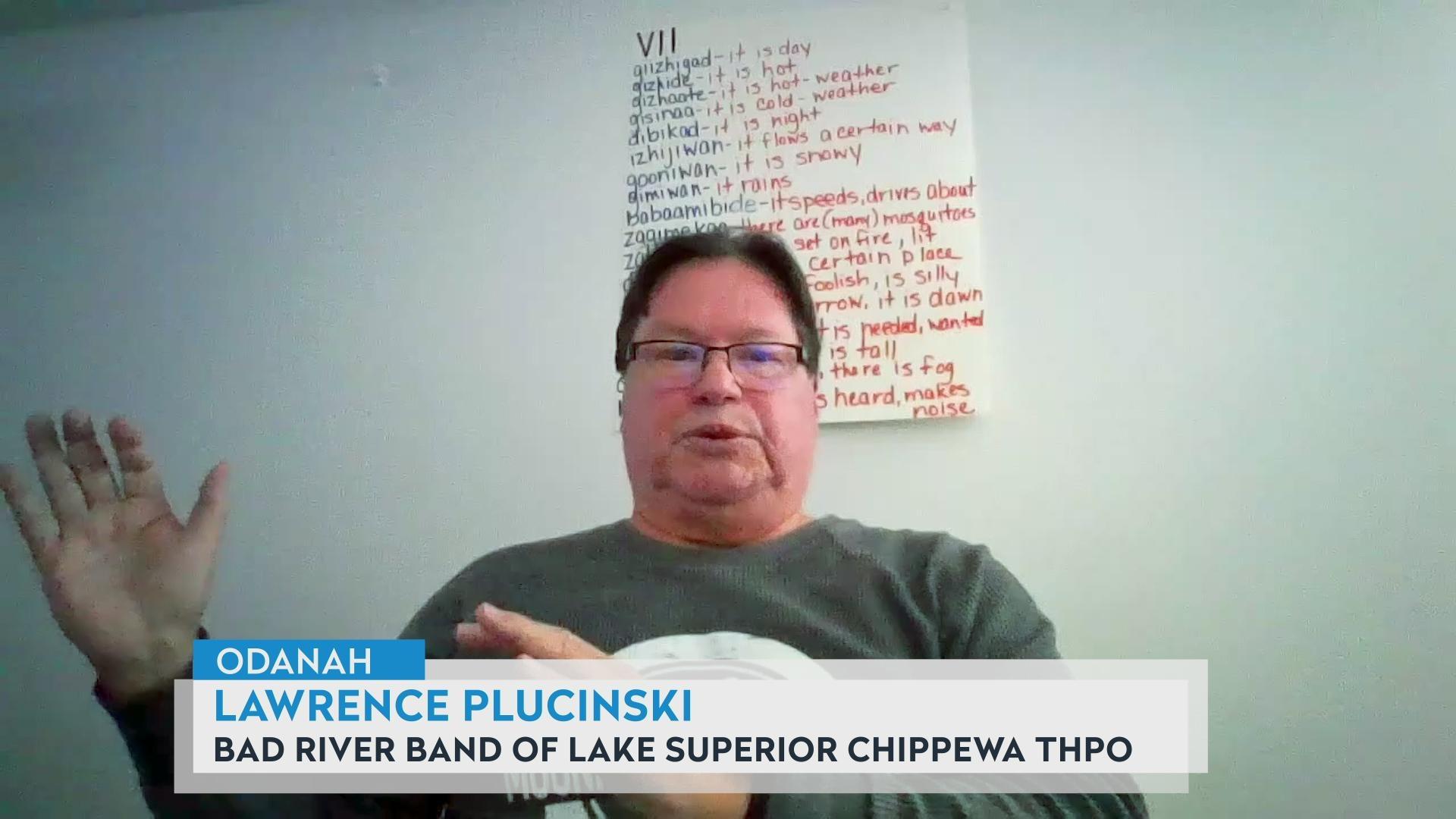
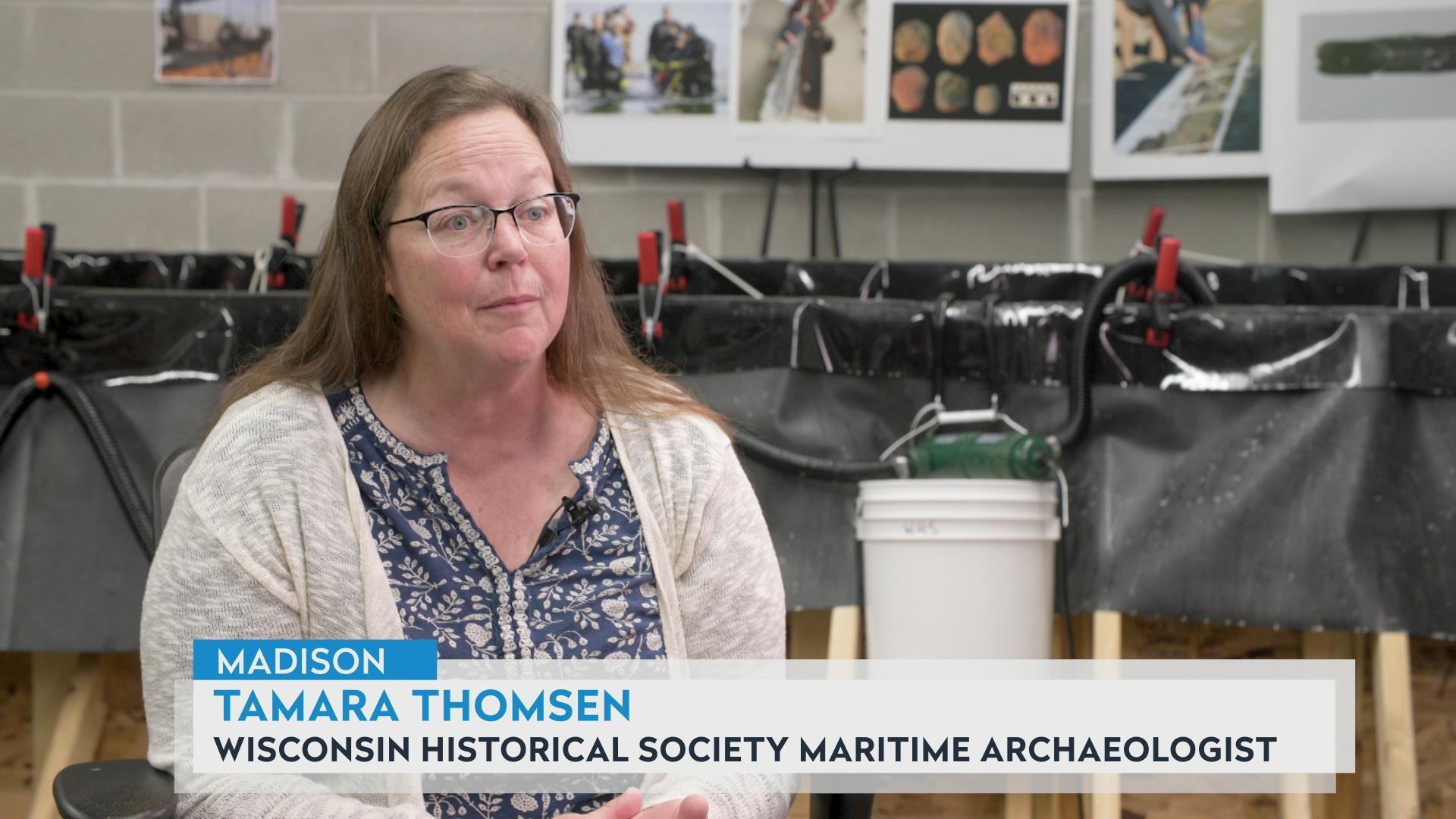
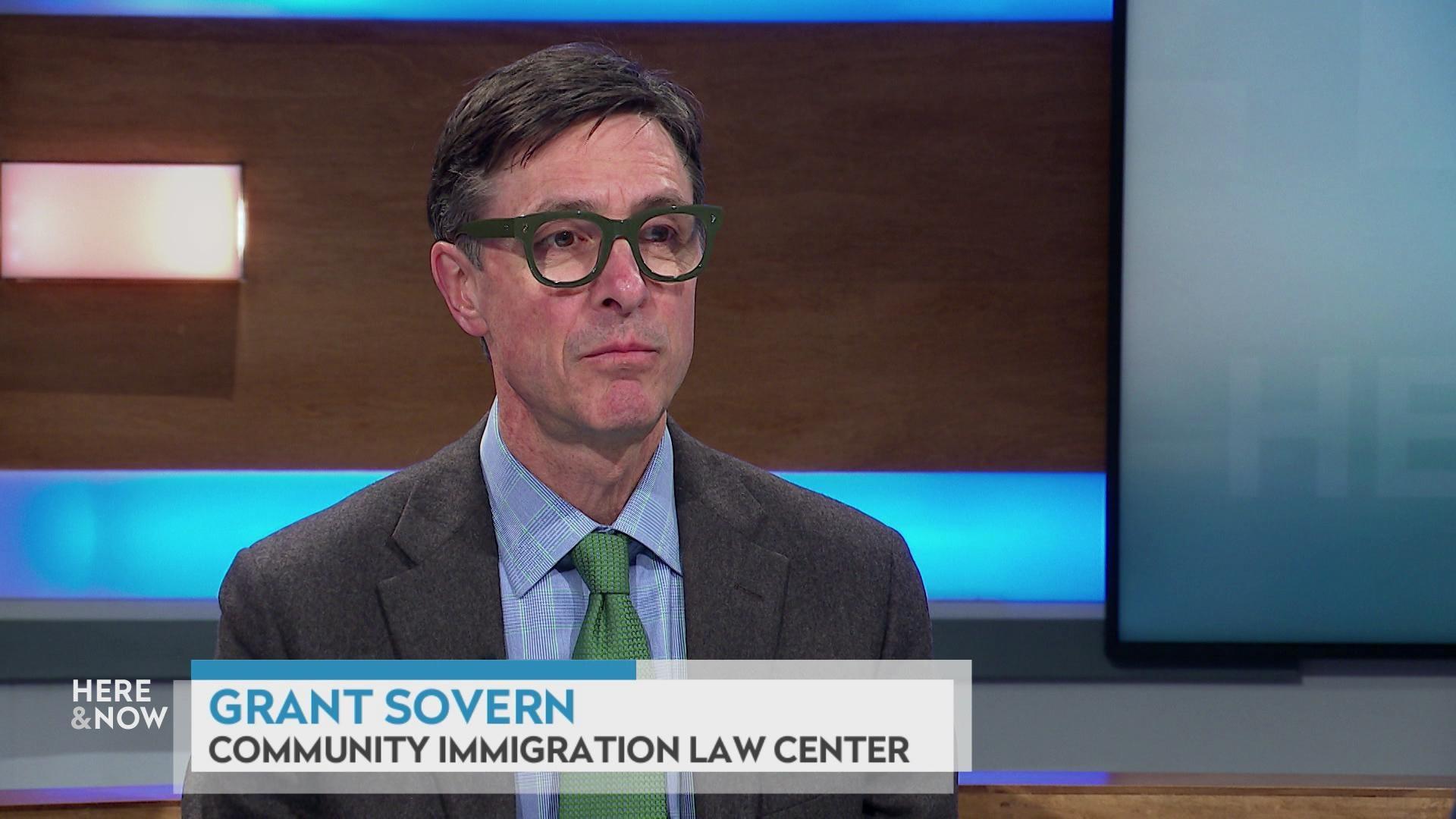
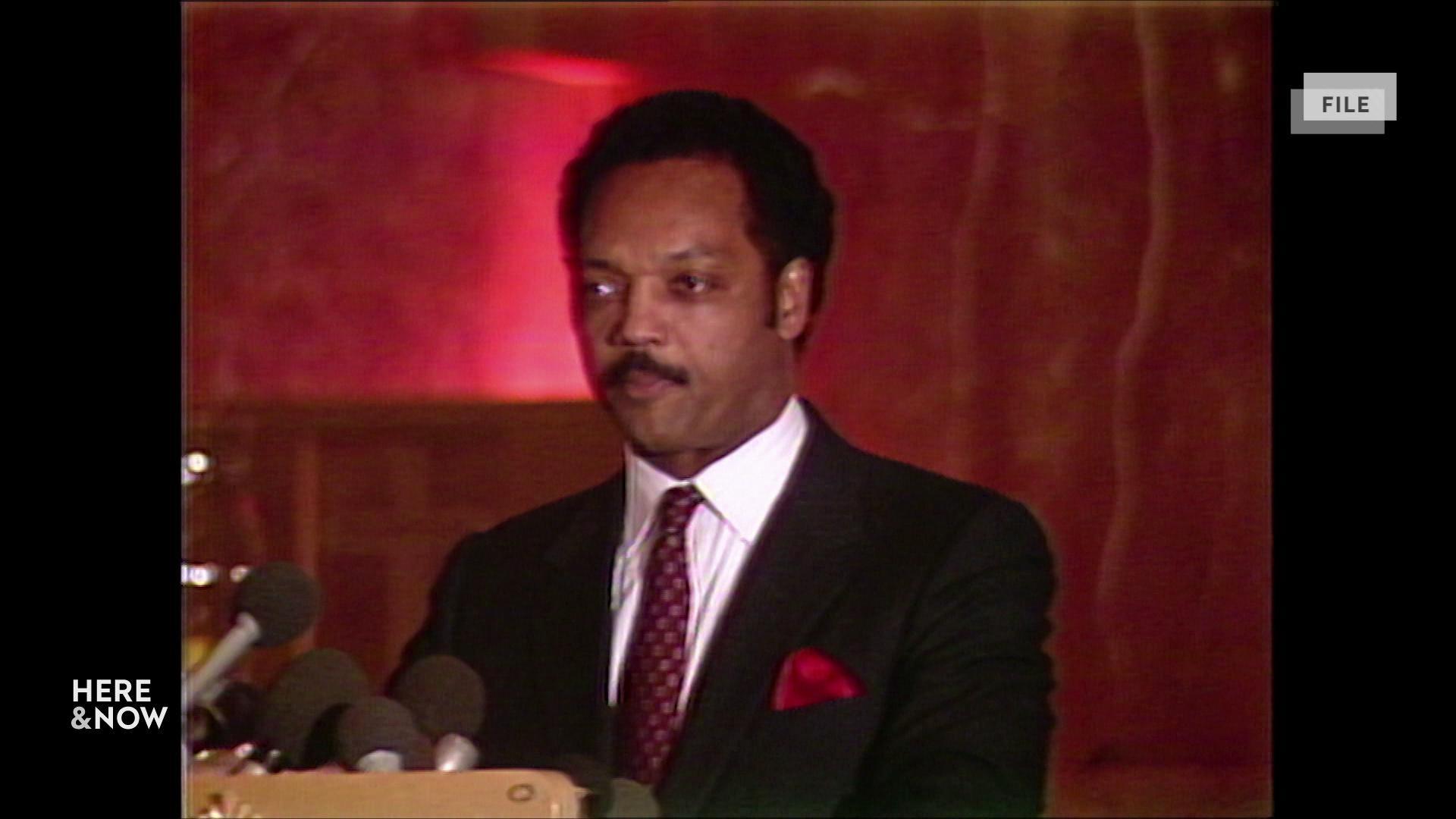
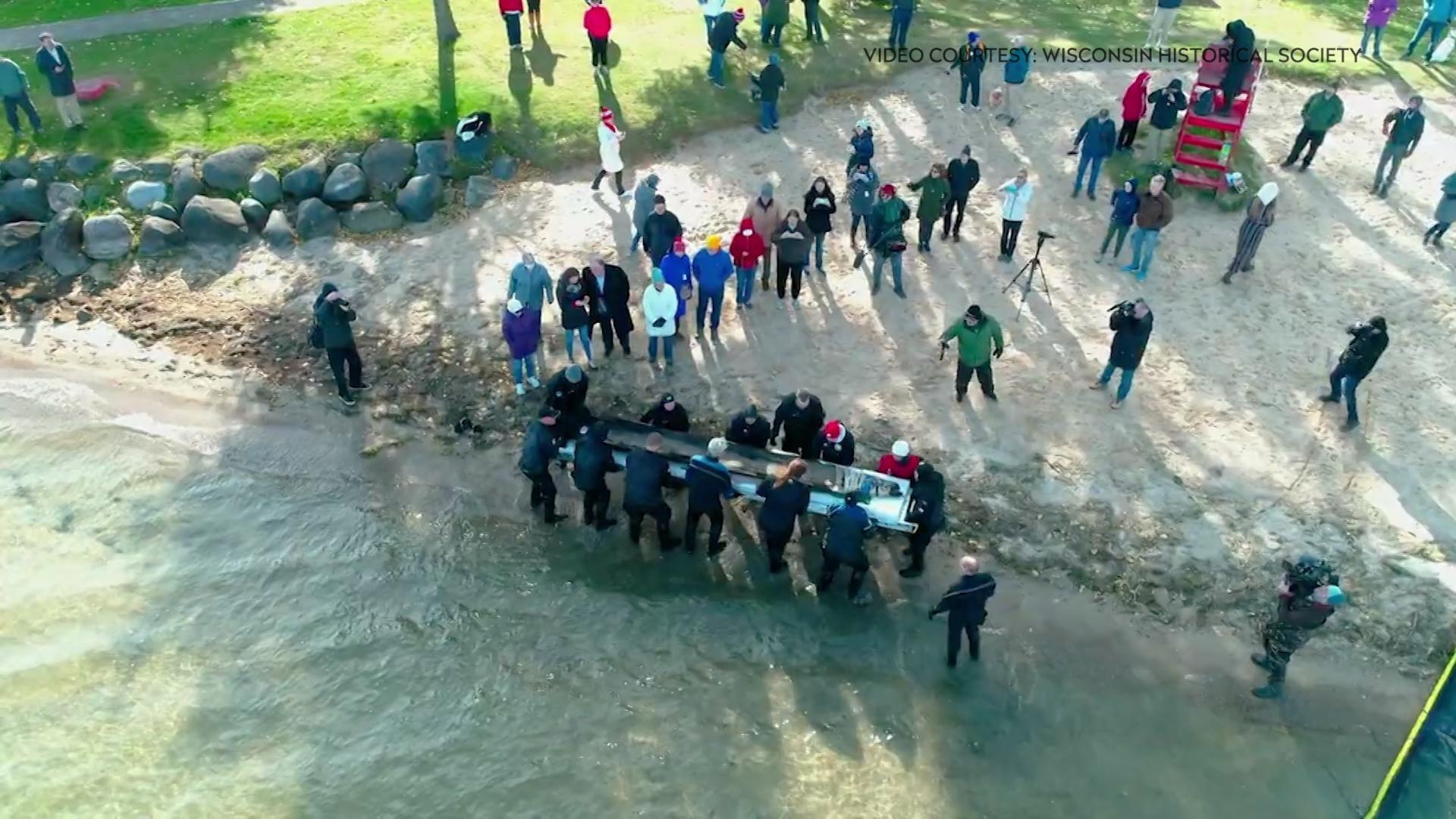
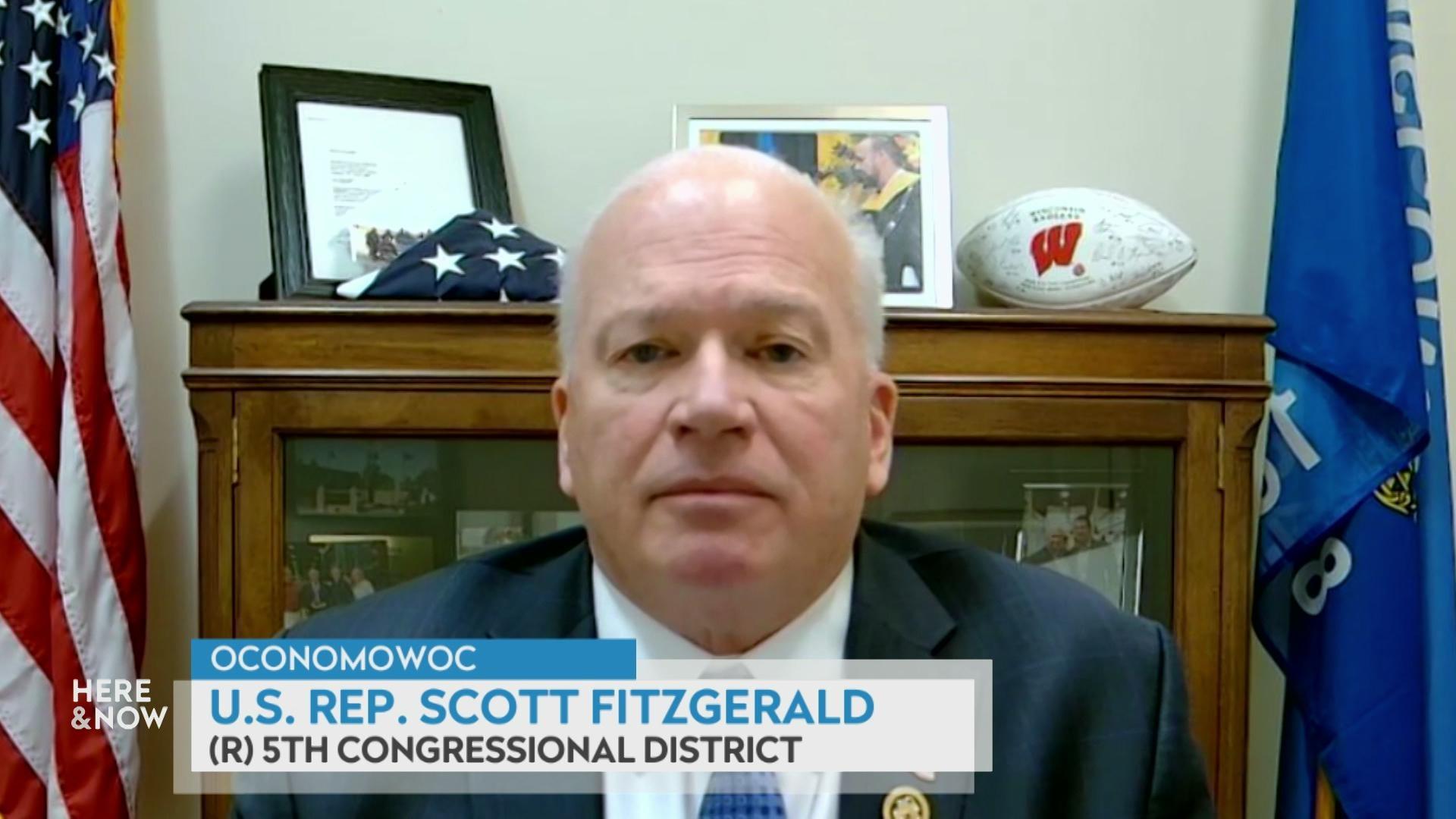

Follow Us